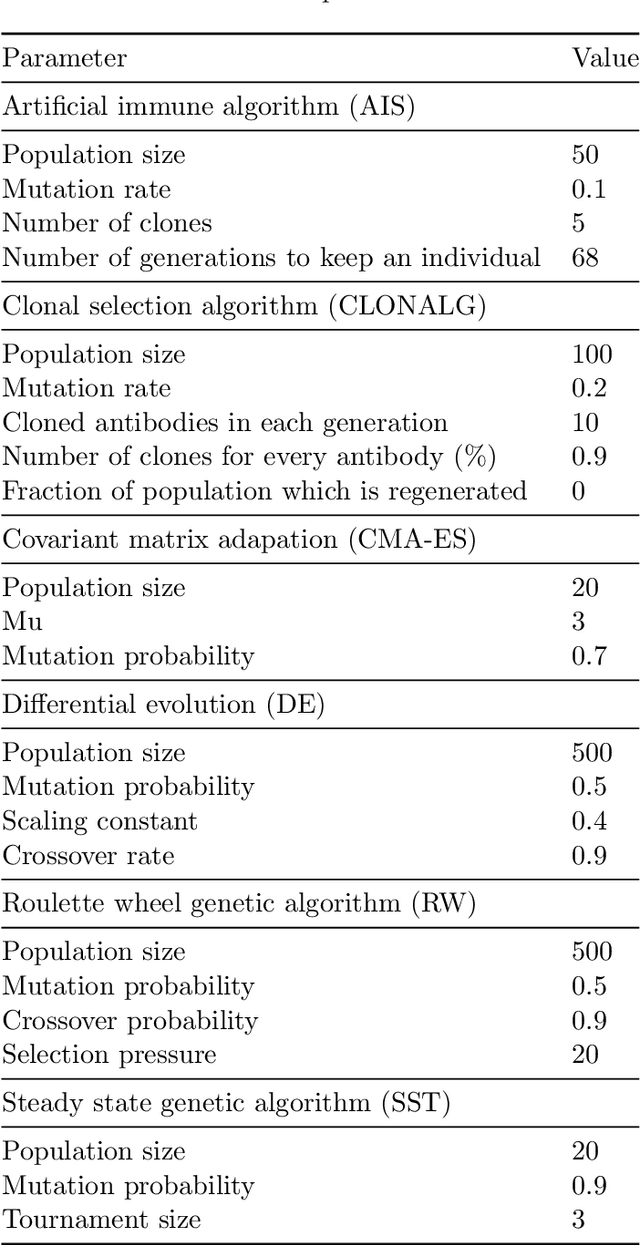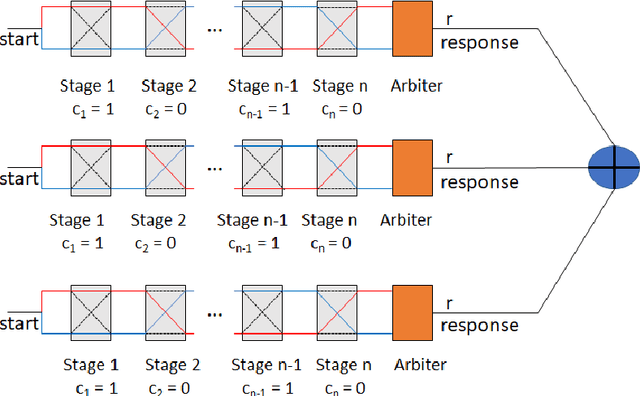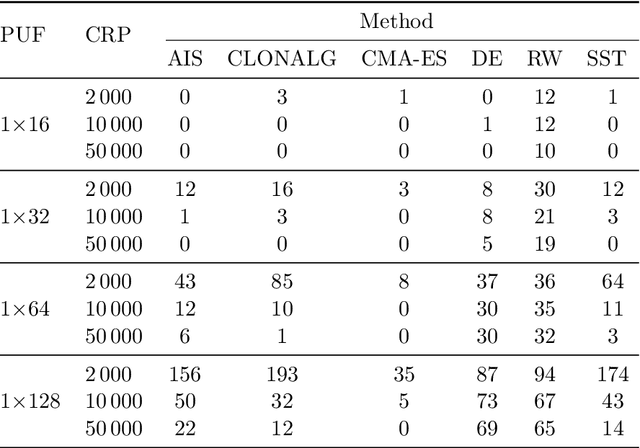Modeling Strong Physically Unclonable Functions with Metaheuristics
Paper and Code
Feb 16, 2022



Evolutionary algorithms have been successfully applied to attacking Physically Unclonable Functions (PUFs). CMA-ES is recognized as the most powerful option for a type of attack called the reliability attack. While there is no reason to doubt the performance of CMA-ES, the lack of comparison with different metaheuristics and results for the challenge-response pair-based attack leaves open questions if there are better-suited metaheuristics for the problem. In this paper, we take a step back and systematically evaluate several metaheuristics for the challenge-response pair-based attack on strong PUFs. Our results confirm that CMA-ES has the best performance, but we also note several other algorithms with similar performance while having smaller computational costs. More precisely, if we provide a sufficient number of challenge-response pairs to train the algorithm, various configurations show good results. Consequently, we conclude that EAs represent a strong option for challenge-response pair-based attacks on PUFs.
 Add to Chrome
Add to Chrome Add to Firefox
Add to Firefox Add to Edge
Add to Edge